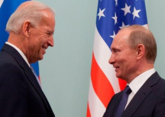Republican Senator of Florida Marco Rubio admitted that U.S. Congress’s enthusiasm for additional sanctions against Russia is waning.
"We face a little bit of sanctions fatigue around here these days. Hopefully we’ll get more people on board," Bloomberg cited Rubio as saying.
According to the agency, many lawmakers still want Russia to face stronger consequences for its actions in the U.S. and elsewhere, but there’s no clear consensus on how to send the right message to the Kremlin. "Two other factors add to the hesitation: concern about unintended economic consequences, and the difficulty of passing legislation in a divided Congress when the measures don’t have the president’s support," the article reads.
Republican Senator of Wisconsin Ron Johnson said that "sanctions can often be a double-edged sword." "So we really should take a little bit of a step back and assess where we are and what we can really do," he said.
Senators Republican of South Carolina Lindsey Graham and Democrat of New Jersey Bob Menendez in February reintroduced their DASKA Act, which would impose sanctions on Russian individuals, cyber operations and liquid natural gas export facilities. The legislation calls for the president to "prescribe regulations" for sanctions on sovereign debt issued 90 days after the law is enacted.
The other Senate bill, the DETER Act, was reintroduced in April by Rubio and Democratic Senator Chris Van Hollen of Maryland. It would require the Director of National Intelligence to tell Congress on any foreign interference within 60 days of a federal election. If a Russian violation is found, sanctions would target that country’s political figures and its energy and defense sectors. Sanctions could also extend to government and state-owned company bonds issued after the bill is signed into law.
The President of the National Strategy Institute, Mikhail Remizov, speaking to Vestnik Kavkaza, noted that the current situation does not give Washington a clear reason to impose sanctions on Russia. In previous years, according to the expert, new sanctions were imposed in the context of strong informational reasons. "The strongest of them were the downed near the Donbas Boeing, the Skripal case and the staged use of chemical weapons in Syria. After each such strong informational occasion, one can develop the sanctions policy in the inertial mode for some time, but then, as Rubio said, they face sanctions fatigue, and some new impulse is needed to restore the policy," he said.
"In this regard, I think we should expect some new events that will push the sanctions policy. As for the call for "more creative" pressure on Russia from the U.S., then it's difficult to predict what the Americans will do. The range of possibilities is wide enough, and, of course, there are plenty of problem issues that the U.S. can use relatively safely for themselves. Of course, Washington will need strategic imagination to find them," Mikhail Remizov warned.
Director of the Institute of Strategic Planning and Forecasting, Professor Alexander Gusev explained Rubio's words about 'sanctions fatigue’ by the fact that a group of anti-Russian congressmen is blocking a legislative agenda in Congress that is more relevant for the United States. "Because of them, issues of sanctions pressure on Russia, North Korea and Iran are discussed at every meeting. The already existing sanctions will last for a very long time, but the activity of Russophobes only increases: in 2018, the House of Representatives and the U.S. Senate considered sanctions only against Russia 10 times. This year, the Senate has already met three times to discuss additions to the existing list, in particular, the so-called January 'Kremlin report'," he recalled.
"The United States is not so tired of discussing bills, but of the fact that they constantly warn Russia, Iran or the North Korea instead of taking tougher actions. Sanctions are not so important to us, and the same goes for North Korea and Iran. As a result, Washington sees that there are no positive results from the sanctions. It forces Brussels to impose similar sanctions, which do not work as intended as well. Moreover, it turns out that no one wants to obey the United States. Europe has not abandoned the Nord Stream -2 project, for example.They could not hold a military coup in Venezuela and put their person as a president. The U.S.is tired of failures, of lack of results of their actions," Alexander Gusev concluded.










